
Dental implants are the most important dentistry advance of our generation. Implants are a quantum leap forward compared to bridges or removable teeth. These earlier technologies can only cover up for missing teeth and can cause damaging side effects. Dental implants are long-term replacements that actually restore the missing tooth and root structures without injury to adjacent teeth.

Dental implants are the best treatment choice for most every situation where teeth are missing – no painful dentures, no metal prongs, and no need to grind down healthy teeth. The implants act as replacement roots, renewing stimulation of the jawbone to maintain its strength. The dental implant success rate, 96-98% for most patients, is far superior to other tooth replacement treatments. With proper care and maintenance, implants can last as long as natural teeth; the dental implant lifespan has been proven to exceed 35 years.
Nearly everyone is a candidate for dental implant treatment, even those who have chronic dental problems, hopeless teeth, or have been missing teeth for decades. Dental implant procedures involve minimal recuperation and can be painlessly performed while you are asleep.
How Do Dental Implants Work?
A typical dental implant tooth is composed of two separate parts:
The actual dental implant is made of titanium and surgically placed into the jawbone. After a few months, the biocompatible titanium fuses with your jawbone and functions as a replacement root. The implant crown, typically made of porcelain, is then custom made to recreate the color and shape of your natural teeth. A third component called an abutment, attaches to the implant and serves as a connector between the implant and the tooth crown. Depending on your individual needs, dental implants can be used to replace a single tooth, a segment of several teeth, or even an entire set of new teeth.
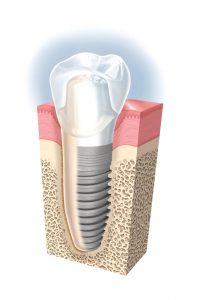
Planning your Treatment
At your initial consultation visit, after thoughtfully listening to you to gain an understanding of your concerns and treatment goals, Doctor Stout will examine your teeth and gums, the occlusion (the way your teeth bite and fit together), and the jaw anatomy. Using exam findings, 3-dimensional CT scans, photos, and virtual surgical planning, Dr. Stout can conference with your restorative dentist to investigate all suitable treatment solutions for you.
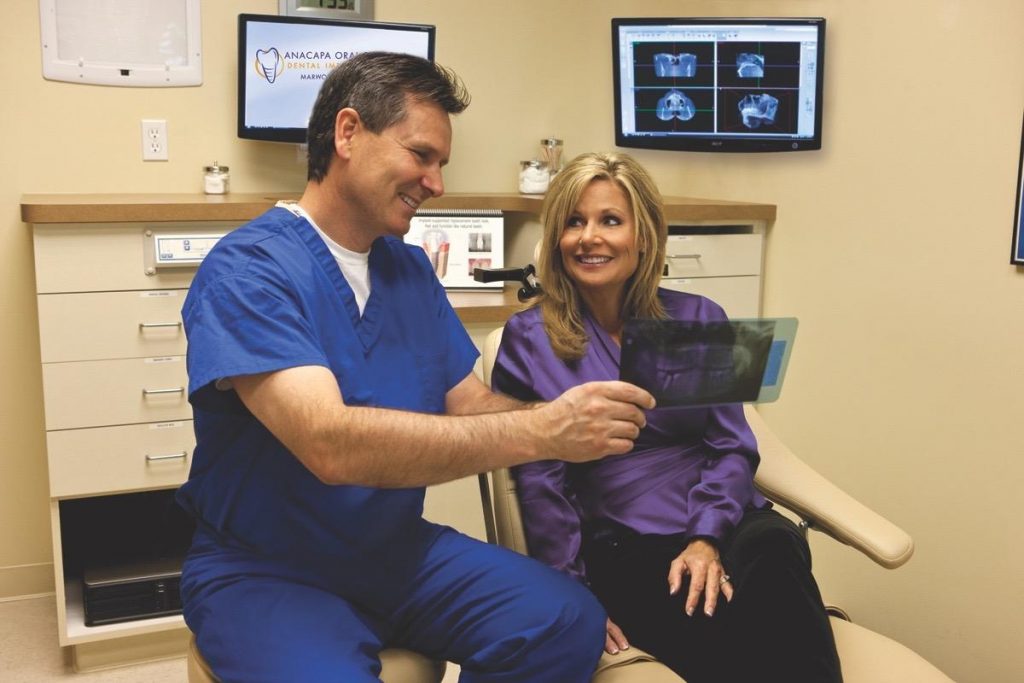
You play the most important role in the decision making process. Dr. Stout will explain your treatment plan options, clarify details and answer any questions, and make sure you feel confident in the treatment plan you choose.
Dental Implant Procedures
If any teeth require removal, it is usually best to take them out right away, then wait a few months for the bone to heal completely before proceeding with implant surgery. Sometimes it is possible to remove hopeless teeth and place the implants all in one procedure. This can shorten your treatment time, but in certain situations it may increase the chance of complications.
In the actual dental implant procedure, a precision socket is created in the jaw bone, and the titanium implant is tightened into position. Once the implant has healed solidly with the bone (usually 3-5 months) it becomes a sturdy replacement root, allowing a replacement tooth or teeth to be attached. In some cases, usually in the front teeth, the gum tissues need to be sculpted or augmented to obtain an ideal cosmetic result.




Attaching Teeth to the Implants
Once your implants have fused with the bone with a healthy layer of gum tissues surrounding them, the implants can be restored with the actual replacement teeth in several different ways.
Implant Crowns or Implant Bridge
After taking impressions and recording your best, natural tooth color, your restoring dentist works closely with a laboratory technician to fabricate the permanent crown that matches your natural teeth in appearance and function. Most of the time, one implant is placed for each missing tooth. If several adjacent teeth are missing, two or more implants can be connected to create an implant bridge replacing 3-4 teeth.

Implant Overdenture
If all the teeth in a jaw are missing, two or four implants can be placed and a modified denture, called an overdenture, is made that snaps securely onto the implants. No more clicking or shifting dentures. This is a cost effective treatment and, compared to conventional dentures, overdentures offer a dramatic improvement in stability, comfort and function, no matter how long teeth have been missing.



Full-Arch Implant Crowns
All the missing teeth in an entire jaw can be replaced with a fixed (non-removable) prosthesis. The teeth are screwed into place and will most closely resemble the appearance, feel, and function of your natural teeth. This is a fantastic treatment. It requires 4 to 6 implants, and can often be done with an immediate non-removable prosthesis, a technique known as “Same-Day Teeth.”
Learn more about Same-Day Teeth.

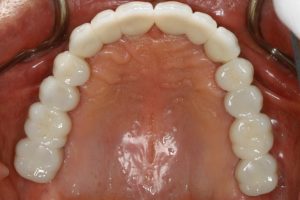
You will not need to go without teeth during your treatment. Temporary replacement teeth can be worn during all phases of the healing process
Non-Implant Tooth Replacement Options
Learn More About Jaw Bone Reconstruction
Dental Implant FAQs
Same Day Teeth
If you are tired of struggling with broken, painful, missing, or unattractive teeth; if you are tired of spending money on fixing teeth only to see them fail a short time later; if you are tired of guarding your smile with your hand because of your teeth, then it may be time to consider dental reconstruction or “Same Day Teeth.”
This process utilizes 4-6 implants to replace all the teeth in an entire upper or lower jaw. And it all happens in one day while you are comfortably asleep. Same Day Teeth can help you look better, eat better, and can make you happy and confident with your smile again.
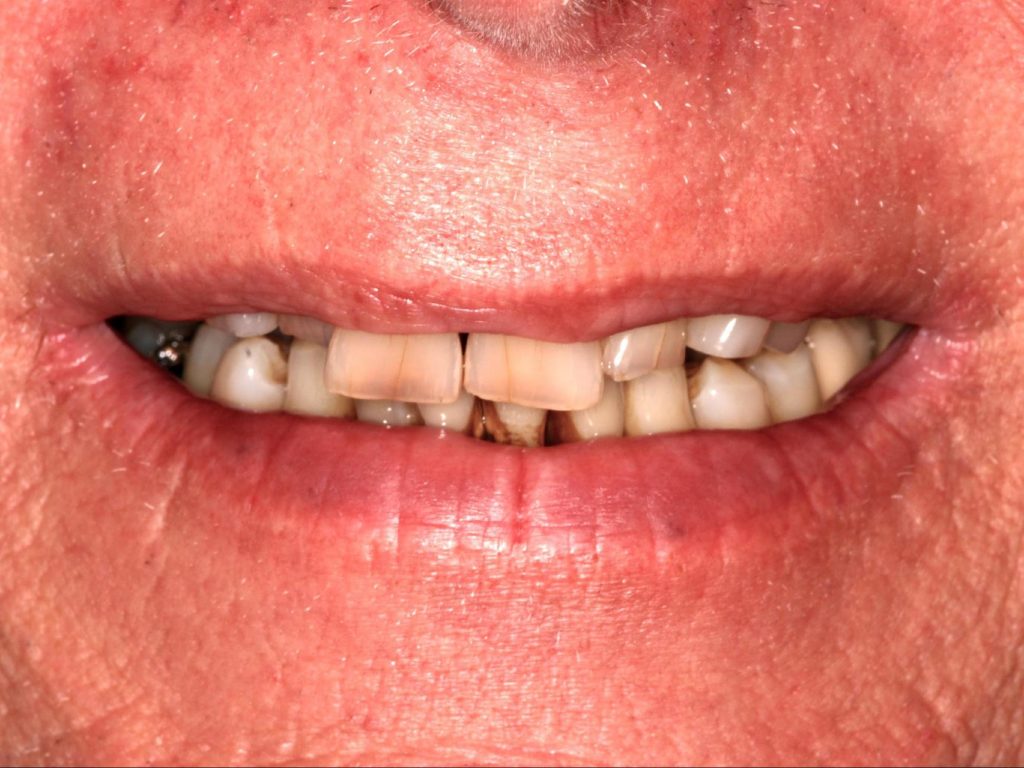
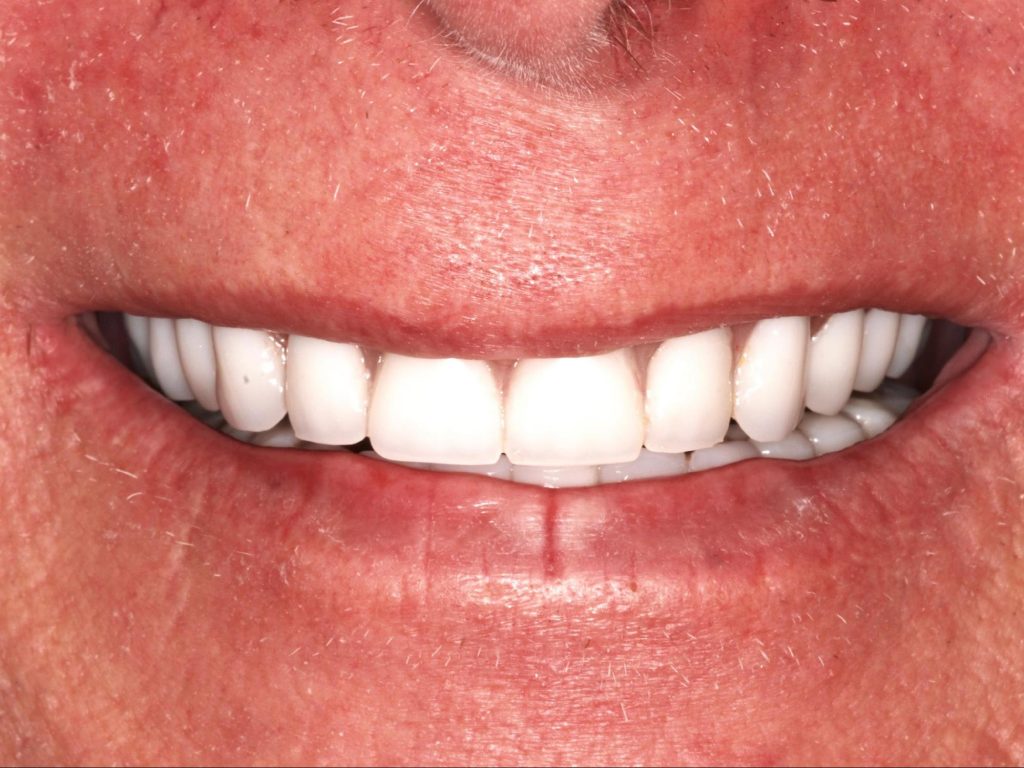
On Your Day of Surgery
The dental implant placement procedure is done in our office surgery center under careful monitoring of your vital signs and with the aid of intravenous sedation anesthesia. Most procedures are simple and take less than one hour to complete.

We do not begin your procedure until you are comfortably asleep. The gums are opened at the implant site and a precision socket is created in the bone. The implant is tightened into position and capped off with a temporary abutment connector. The gums are closed with dissolving sutures. Once we have finished your treatment, you will awaken in comfort from the sedation. When you return home, it is best to keep your activity light for a day or two.
We will make sure you are comfortable during your recuperation. The discomfort after implant surgery is surprisingly mild, but prescription pain medication is available. It is best to be on a soft diet for a few days and avoid chewing on the surgical area.
Walk into our office with loose dentures, missing or hopeless teeth, and walk out with a beautiful new set of secured teeth – on the very same day, and in complete comfort. It almost sounds too good to be true. Come in to meet with Dr. Stout to see if you are a candidate for the Same Day Teeth procedure.